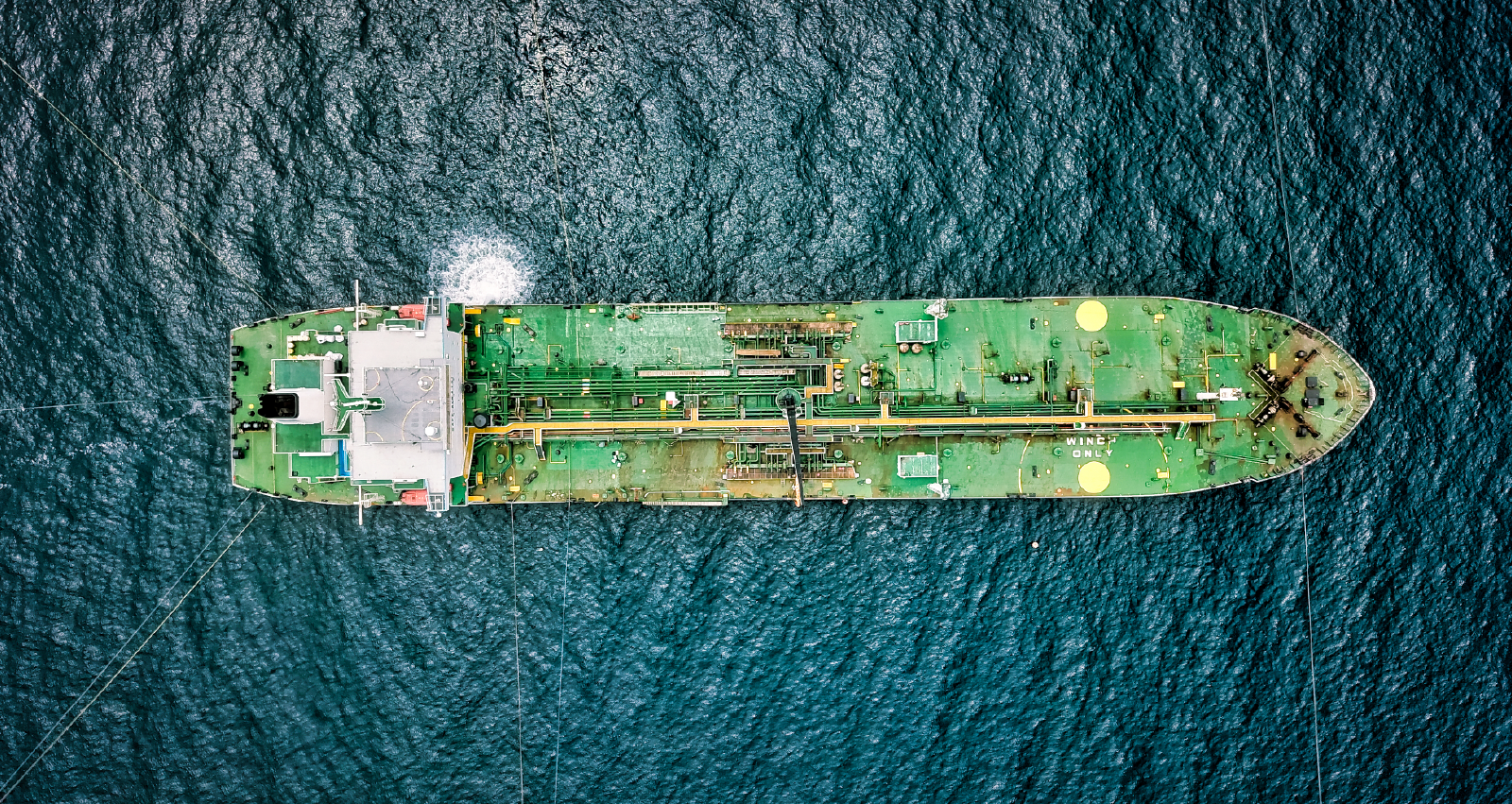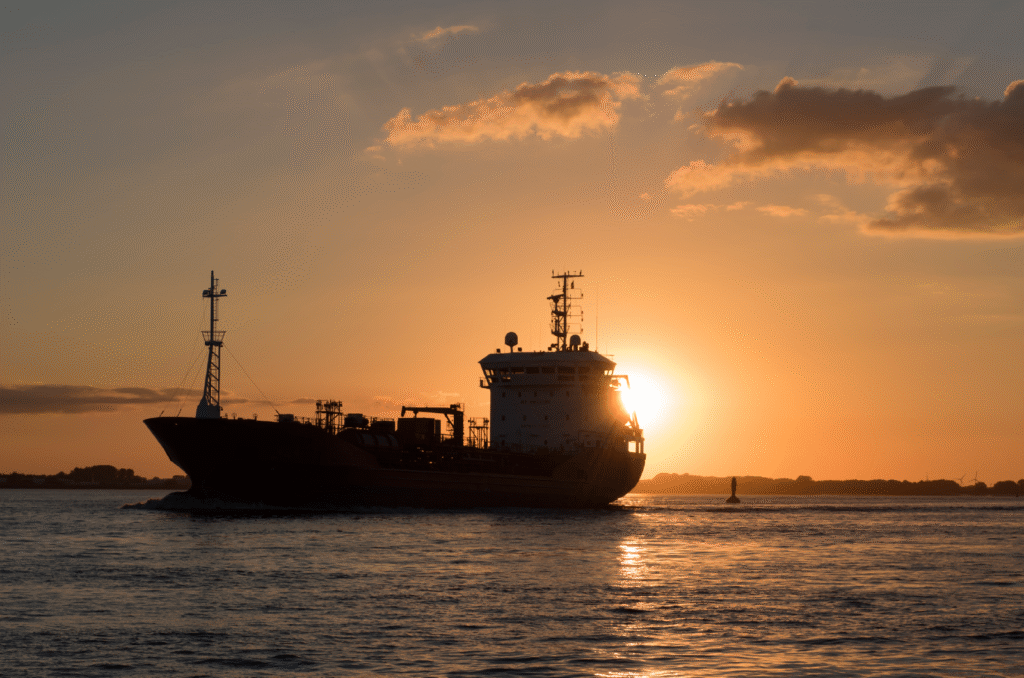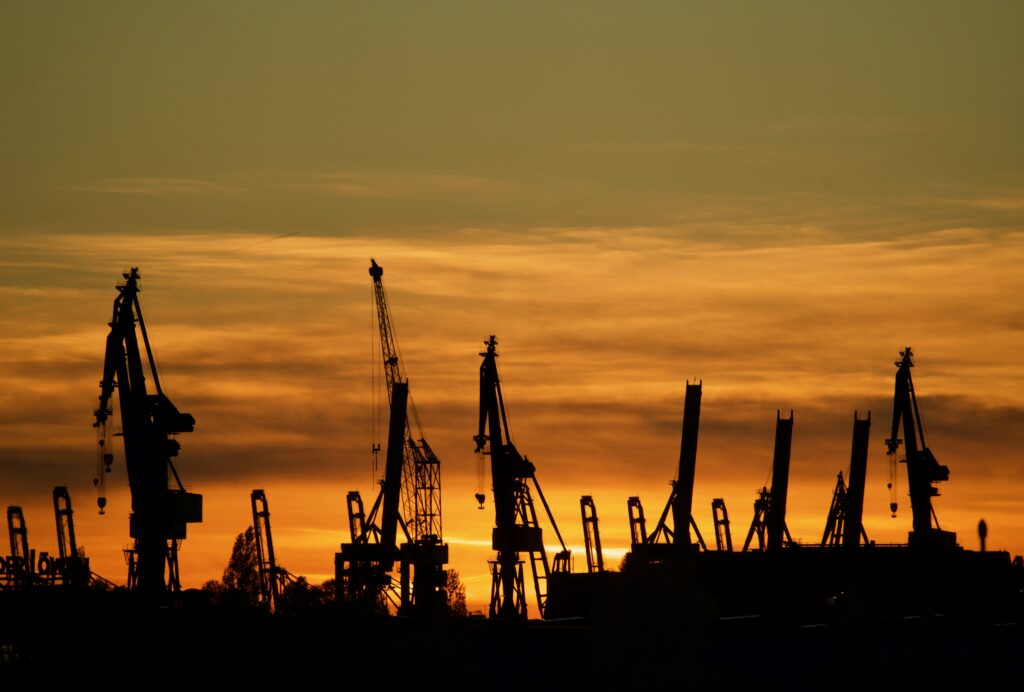Shipping
We serve the main players in the shipping market, including vessel owners, shipping companies, port operators, technology providers, and investors. Our advisory services cover contracts, regulatory matters, strategic litigation and arbitration, project structuring, M&A, and financing
Shipping
We serve the main players in the shipping market, including vessel owners, shipping companies, port operators, technology providers, and investors. Our advisory services cover contracts, regulatory matters, strategic litigation and arbitration, project structuring, M&A, and financing

The privileged position of Brazil’s maritime sector in the global economy is due not only to the country’s strategic location and extensive coastline, but also to significant public and private investments in modernization, capacity expansion, and reduction of operational costs, as well as Brazil’s strong capacity to produce and supply commodities and the international relevance of its energy industry
The privileged position of Brazil’s maritime sector in the global economy is due not only to the country’s strategic location and extensive coastline, but also to significant public and private investments in modernization, capacity expansion, and reduction of operational costs, as well as Brazil’s strong capacity to produce and supply commodities and the international relevance of its energy industry
Our take on the industry
With over seven thousand kilometers of coastline, a strategic location between the Americas, Europe, and Africa, and one of the largest river networks in the world, Brazil stands out as a key player on the global stage and a critical hub for maritime trade routes. Added to this is the international significance of the Brazilian oil and gas industry and the country’s capacity to produce and supply commodities such as soy, corn, iron ore, and oil
In this context, Brazil’s shipping sector is essential for foreign trade and the country’s economic growth, with around 90% of exports and imports transported by sea. In recent years, the sector has received increased public and private investment aimed at modernizing infrastructure, boosting cargo capacity, and reducing operational costs. New technologies are being implemented, including automation of port terminals and digital systems to improve operational efficiency
Brazil also has an extensive network of public ports and private-use terminals (TUPs), which play a vital role in export and import logistics. Recently, there was an initiative to privatize public ports to modernize and improve operational efficiency. However, this process was halted, and public ports continue to face challenges related to efficiency and resource availability to meet growing demand. Consequently, Brazil still offers excellent investment opportunities in private-use terminals (TUPs)
Global demand for commodities keeps Brazilian ports busy. Within this scenario, the offshore oil and gas segment in Brazil stands out as one of the most important worldwide, driven by pre-salt oil exploration. Shipping companies supporting offshore operations—such as those providing maritime support vessels, FPSOs, and drilling rigs—play a crucial role, with strong demand for specialized vessels, particularly in deepwater and ultra-deepwater exploration and production activities
Coastal shipping (cabotage) has gained relevance, supported by government incentives as an alternative to road transport. In 2022, Law 14.301/2022 was enacted, establishing the “BR do Mar” program, which aims to reduce cabotage costs, increase the national fleet, and attract investment. Cabotage has emerged as an effective domestic logistics solution given Brazil’s continental dimensions
Finally, the global shipping sector is increasingly pressured to adopt sustainable practices, and Brazil is no exception. Key topics include fleet decarbonization, emissions reduction, and environmental management of ports and terminals. Companies are investing in new technologies, such as alternative fuels and more efficient vessels, while regulatory oversight continues to increase to ensure the protection of marine ecosystems
Our take on the industry
With over seven thousand kilometers of coastline, a strategic location between the Americas, Europe, and Africa, and one of the largest river networks in the world, Brazil stands out as a key player on the global stage and a critical hub for maritime trade routes. Added to this is the international significance of the Brazilian oil and gas industry and the country’s capacity to produce and supply commodities such as soy, corn, iron ore, and oil
In this context, Brazil’s shipping sector is essential for foreign trade and the country’s economic growth, with around 90% of exports and imports transported by sea. In recent years, the sector has received increased public and private investment aimed at modernizing infrastructure, boosting cargo capacity, and reducing operational costs. New technologies are being implemented, including automation of port terminals and digital systems to improve operational efficiency
Brazil also has an extensive network of public ports and private-use terminals (TUPs), which play a vital role in export and import logistics. Recently, there was an initiative to privatize public ports to modernize and improve operational efficiency. However, this process was halted, and public ports continue to face challenges related to efficiency and resource availability to meet growing demand. Consequently, Brazil still offers excellent investment opportunities in private-use terminals (TUPs)
Global demand for commodities keeps Brazilian ports busy. Within this scenario, the offshore oil and gas segment in Brazil stands out as one of the most important worldwide, driven by pre-salt oil exploration. Shipping companies supporting offshore operations—such as those providing maritime support vessels, FPSOs, and drilling rigs—play a crucial role, with strong demand for specialized vessels, particularly in deepwater and ultra-deepwater exploration and production activities
Coastal shipping (cabotage) has gained relevance, supported by government incentives as an alternative to road transport. In 2022, Law 14.301/2022 was enacted, establishing the “BR do Mar” program, which aims to reduce cabotage costs, increase the national fleet, and attract investment. Cabotage has emerged as an effective domestic logistics solution given Brazil’s continental dimensions
Finally, the global shipping sector is increasingly pressured to adopt sustainable practices, and Brazil is no exception. Key topics include fleet decarbonization, emissions reduction, and environmental management of ports and terminals. Companies are investing in new technologies, such as alternative fuels and more efficient vessels, while regulatory oversight continues to increase to ensure the protection of marine ecosystems

Opportunities
- Expansion of the coastal shipping sector driven by the “BR do Mar” program
- Modernization and privatization of public ports and development of new private-use terminals (TUPs)
- Smart ports with digital integration and real-time monitoring
- Intelligent navigation systems
- Technology and automation advancements
- Research and development of autonomous vessels
- Integration of ports with energy projects, particularly for the export of low-carbon hydrogen and ammonia
- Transition to a low-carbon economy in the shipping sector
- Continued global demand for commodities
- Expansion of foreign trade and new trade routes, including growth of export processing zones (ZPEs) near ports
- Exploration and production of offshore assets, including expansion and restructuring of mature oil & gas assets and development of new frontiers, such as the Equatorial Margin
- Growing global market for infrastructure suppliers supporting ultra-deepwater operations, including FPSOs, drilling rigs, support vessels, equipment, and subsea infrastructure
Challenges
- Complex and constantly evolving regulatory framework
- Increasingly stringent environmental requirements
- Frequent contractual disputes in long-term projects
- Regulatory and contractual requirements for local investment (local content)
- Need to attract and retain qualified professionals, particularly in technical and operational areas of vessels
- High investment requirements to adapt to technological innovations, such as automation and digitalization
- Need to integrate and manage large volumes of data to optimize operations and improve decision-making
- Complexity of supply chains and the need for better integration across different transport modalities
- Complex tax regime
- Land-related issues in port projects
Macrotrends
- Strong market for offshore support vessels
- Increase in disputes seeking rebalancing of charter contracts
- Growth in shipbuilding activity driven by incentive policies
- New investments in private terminals (TUPs)
- Opportunities linked to the development of hydrogen and ammonia hubs
- Growth of cabotage dependent on the regulation of the “BR do Mar” program
- Challenges in recruiting skilled professionals for the sector

Work Highlights
Vessel Sale and Purchase
We assist clients in the sale and purchase of vessels, providing full legal support throughout all stages of the process. Our work includes negotiation and drafting of contracts, procedures for effective transfer of ownership before the relevant authorities abroad and in Brazil, such as the Maritime Registry, Maritime Court, and Port Captaincies, as well as suspension, reactivation, and modification of vessel registration. Our experience includes advising a major Greek shipowner on the acquisition of a Brazilian offshore support vessel, and an independent Australian E&P company in the sale of the FPSO Northern Endeavour and the assignment of oil withdrawal agreements in conjunction with its participation in the Laminaria and Corallina fields, located in the Timor Basin, offshore between Australia and Indonesia
Vessel Financing
We assist ship financing funds in structuring transactions, including: a USD 812 million financing for the construction and operation of an FPSO in the Santos Basin, São Paulo, Brazil; advising a ship financing fund on compliance matters arising from an FPSO project in Brazil; and assisting a ship financing bank in a debt restructuring of the FPSO OSX-1, including negotiations with ANP and advising creditors on steps to resume and re-export the vessel from Brazilian waters
Regulatory Matters
Our expertise covers advising global engineering and construction solution providers in the energy industry on regulatory issues with ANTAQ and the Brazilian Navy in connection with offshore construction activities for the Atlanta Field, Santos Basin, offshore Brazil; and advising a Dutch multinational oil and gas solutions provider on Brazilian maritime regulations and procedures with the Brazilian Maritime Court, among others
Port Projects
We support port operators and investors in project structuring, contractual negotiations, and regulatory, tax, and security matters relevant to their business. Our experience includes advising an industrial port complex with a depth of up to 25 meters and the capacity to accommodate large tankers such as Valemax and VLCCs, located in Presidente Kennedy, Espírito Santo, Brazil, including contract drafting and regulatory advice related to ship-to-ship services and port operations for tankers operating in Brazil
LNG Projects with FSRUs
We advise operators, vessel owners, and financiers on all aspects of liquefied natural gas (LNG) projects, including transactions, regulatory matters, and financing. Our team has actively participated in major LNG projects in Brazil using Floating Storage and Regasification Units (FSRUs), including legal support for the acquisition of a 1.5 GW combined-cycle gas-fired power plant in Ceará, Brazil, supplied by an FSRU, with a sale value of USD 2.16 billion and involving parties from Brazil, the U.S., and the U.K.; as well as advising on the bidding for the lease of Petrobras’ Bahia regasification terminal (TRBA), among others
Cross-Border Floating LNG Project
We provide legal advice to a leading international energy trader on a cross-border floating LNG project involving the export of U.S. natural gas to Mexico for liquefaction in floating facilities to be located in Topolobampo, with subsequent transport to Mexican regions currently not served by natural gas pipelines, and secondary use of LNG for exports to Asian markets
FPSO contracting and operation
We provide legal advice on all matters related to the contracting and operation of FPSOs, including contract negotiations and tenders, project structuring, regulatory and tax support, financing, and obtaining environmental licenses and authorizations from competent authorities such as the Brazilian Navy. Our experience includes legal advice to a global market-leading vessel owner in Petrobras tenders for the charter and operation of FPSOs; to an energy services and solutions provider in a Petrobras tender for FPSO charter to operate in the Libra, Tartaruga Verde, and Mestiça fields; among others
Litigation and Arbitration
We assist clients in resolving complex disputes, both in arbitral tribunals, judicial courts, and administrative proceedings. Our experience includes legal advice to FPSO construction companies and operators in disputes exceeding USD 700 million, in arbitrations and litigation before the Rio de Janeiro State Court against Petrobras for contractual economic-financial rebalancing and contractual penalties
Work Highlights
Vessel Sale and Purchase
We assist clients in the sale and purchase of vessels, providing full legal support throughout all stages of the process. Our work includes negotiation and drafting of contracts, procedures for effective transfer of ownership before the relevant authorities abroad and in Brazil, such as the Maritime Registry, Maritime Court, and Port Captaincies, as well as suspension, reactivation, and modification of vessel registration. Our experience includes advising a major Greek shipowner on the acquisition of a Brazilian offshore support vessel, and an independent Australian E&P company in the sale of the FPSO Northern Endeavour and the assignment of oil withdrawal agreements in conjunction with its participation in the Laminaria and Corallina fields, located in the Timor Basin, offshore between Australia and Indonesia
Vessel Financing
We assist ship financing funds in structuring transactions, including: a USD 812 million financing for the construction and operation of an FPSO in the Santos Basin, São Paulo, Brazil; advising a ship financing fund on compliance matters arising from an FPSO project in Brazil; and assisting a ship financing bank in a debt restructuring of the FPSO OSX-1, including negotiations with ANP and advising creditors on steps to resume and re-export the vessel from Brazilian waters
Regulatory Matters
Our expertise covers advising global engineering and construction solution providers in the energy industry on regulatory issues with ANTAQ and the Brazilian Navy in connection with offshore construction activities for the Atlanta Field, Santos Basin, offshore Brazil; and advising a Dutch multinational oil and gas solutions provider on Brazilian maritime regulations and procedures with the Brazilian Maritime Court, among others
Port Projects
We support port operators and investors in project structuring, contractual negotiations, and regulatory, tax, and security matters relevant to their business. Our experience includes advising an industrial port complex with a depth of up to 25 meters and the capacity to accommodate large tankers such as Valemax and VLCCs, located in Presidente Kennedy, Espírito Santo, Brazil, including contract drafting and regulatory advice related to ship-to-ship services and port operations for tankers operating in Brazil
LNG Projects with FSRUs
We advise operators, vessel owners, and financiers on all aspects of liquefied natural gas (LNG) projects, including transactions, regulatory matters, and financing. Our team has actively participated in major LNG projects in Brazil using Floating Storage and Regasification Units (FSRUs), including legal support for the acquisition of a 1.5 GW combined-cycle gas-fired power plant in Ceará, Brazil, supplied by an FSRU, with a sale value of USD 2.16 billion and involving parties from Brazil, the U.S., and the U.K.; as well as advising on the bidding for the lease of Petrobras’ Bahia regasification terminal (TRBA), among others
Cross-Border Floating LNG Project
We provide legal advice to a leading international energy trader on a cross-border floating LNG project involving the export of U.S. natural gas to Mexico for liquefaction in floating facilities to be located in Topolobampo, with subsequent transport to Mexican regions currently not served by natural gas pipelines, and secondary use of LNG for exports to Asian markets
FPSO contracting and operation
We provide legal advice on all matters related to the contracting and operation of FPSOs, including contract negotiations and tenders, project structuring, regulatory and tax support, financing, and obtaining environmental licenses and authorizations from competent authorities such as the Brazilian Navy. Our experience includes legal advice to a global market-leading vessel owner in Petrobras tenders for the charter and operation of FPSOs; to an energy services and solutions provider in a Petrobras tender for FPSO charter to operate in the Libra, Tartaruga Verde, and Mestiça fields; among others
Litigation and Arbitration
We assist clients in resolving complex disputes, both in arbitral tribunals, judicial courts, and administrative proceedings. Our experience includes legal advice to FPSO construction companies and operators in disputes exceeding USD 700 million, in arbitrations and litigation before the Rio de Janeiro State Court against Petrobras for contractual economic-financial rebalancing and contractual penalties




























